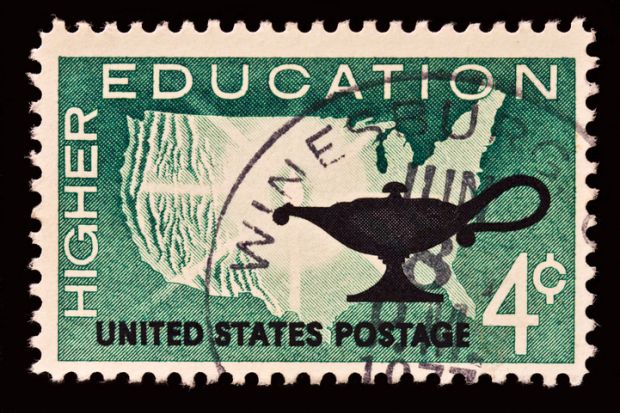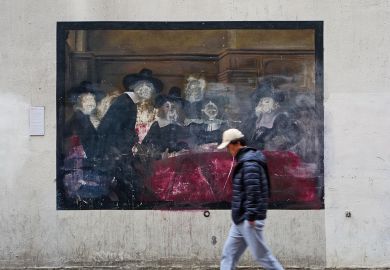Both scholarly and popular writing about the impacts of the 1960s on universities, learning and scholarship swing widely and wildly. They range from undiluted praise – usually with a paean to a lost golden moment – to unrelenting condemnation, with many voices between these extremes.
To the political Right, the 1960s is often seen as the period when scholarship (in certain disciplines, at least) strayed from the pursuit of truth to the pursuit of social change. It is no accident that conservative academics immediately indict those with whom they disagree as “political” and therefore biased (even as they say nothing about fellow conservatives who cross the lines of scholarly integrity, from economist Thomas Sowell and historian Peter Wood to political theorist Francis Fukuyama and linguist John McWhorter).
And many on the Left tacitly accept the slight by attempting to argue that far from being “politicised”, their research is actually a purely objective, disinterested pursuit of truth. Neither side grasps what many reputable scholars recognised in the 1960s: that scholarship is inescapably political but need not thereby be partisan or narrowly ideological.
But far from adhering to such misleading binaries, we need to conceptualise inquiry in its complicated fullness. Scholarship is a set of integrated interpretive acts that are practised in specific historical contexts, including of time, space and current conversations and debates. These socio-intellectual processes – with due weight to both dimensions – embrace not only the “traditions” or “narratives” of “inherited wisdom” of disciplines but also new questions, sources, methods, comparisons and interpretive emphases.
Hence, to a significant degree, all knowledge is a product of its own context, its time and place. None is universal, timeless or unamenable to challenge – even, as Thomas Kuhn showed in 1962, in science. Objectivity and subjectivity exist on a spectrum; they are not polar opposites.
There are many exemplars of hewing to professional standards of fact-based research, transparent analysis, clear statements of assumptions, and responsible critical comparisons of contesting viewpoints. I think, for instance, of Eric Hobsbawm’s The Age of Revolution: Europe, 1789-1848 (1962) and Labouring Men: Studies in the History of Labour (1964). On the other side of the Atlantic, I think of Michael B. Katz’s Improving Poor People: The Welfare State, the “Underclass,” and Urban Schools as History (1995) and The Undeserving Poor: America’s Enduring Confrontation with Poverty (2nd ed., 2013).
In geography, good examples are David Harvey’s Justice, Nature and the Geography of Difference (1996) or Rebel Cities: From the Right to the City to the Urban Revolution (2012). And in political science, there is Ira Katznelson’s Marxism and the City (1992) or Fear Itself: The New Deal and the Origins of Our Time (2013).
There are also the relevant writings of Craig Calhoun in sociology and John Guillory in English, among others across disciplines and interpretive stances. Individually and collectively, they exhibit the power of intellectually disciplined applied, committed scholarship.
That is a path I too have attempted to tread. In graduate school in the late 1960s, my professors taught me that if I studied the relevant literature; if my questions were appropriately contextual and interpretive; if my research (including sources and methods) was thorough and transparent; and if my arguments and conclusions were open to scrutiny by peers, I could legitimately assert new interpretations and advocate for positions that clearly follow.
I took this approach from the start: from my first book, which quantitatively and qualitatively probed historical levels of literacy and the social, cultural, political and economic significance of its distribution. My questions led me to combine the then new social, urban, demographic and quantitative histories with traditional approaches and sources. The result was an influential challenge to what I defined as The Literacy Myth (1979), the undocumented belief that literacy by itself has an independently transformative impact regardless of other factors.
Another book-length project, Conflicting Paths: Growing Up in America (1995), centred on the social-cultural analysis or novel “reading” of more than 500 first-person narratives of childhood, adolescence and youth through the lens of a “new social” historian. I established different major patterns of growing up and their changes over time.
These projects were avowedly revisionist and offered recommendations for historical reinterpretation, suggestions for other humanities and social science disciplines, and social and institutional policies. These are legitimate extensions of scholarship.
The idea that revisionism is something to be ashamed of – to be condemned as “politicisation” or “presentism” – amounts to a misinformed harking back to a mythical golden age of classics, canons and objective truth. Epistemological misunderstanding too easily combines with ideology to separate facts from findings, instead of interrelating and interrogating them.
That objectivity and advocacy are not necessarily opposed in fact-based, knowledgeable, responsible and honestly argued scholarship is among the key lessons of the 1960s. We forget it at irreplaceable cost.
Harvey J. Graff is professor emeritus of English and history at The Ohio State University and inaugural Ohio Eminent Scholar in Literacy Studies. He is the author of many books on social history, the history of literacy and education, and interdisciplinarity.
POSTSCRIPT:
Print headline: The best scholarship is political but not partisan or ideological
Register to continue
Why register?
- Registration is free and only takes a moment
- Once registered, you can read 3 articles a month
- Sign up for our newsletter
Subscribe
Or subscribe for unlimited access to:
- Unlimited access to news, views, insights & reviews
- Digital editions
- Digital access to THE’s university and college rankings analysis
Already registered or a current subscriber? Login








